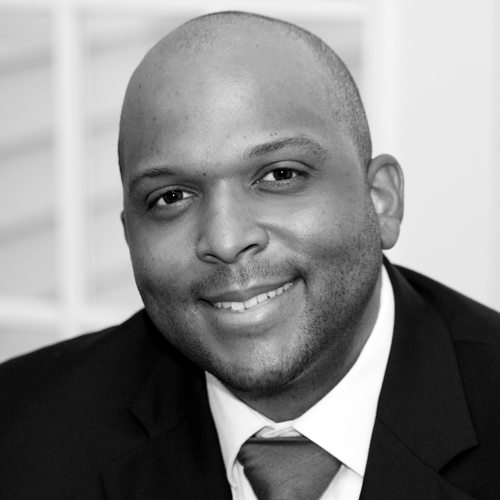
Kenton Erwin doesn’t mince words when he shares how he became the only in-house attorney in the United States for a lean-spirited, multinational company that reaches nearly $2 billion in global revenue.
“I meet lawyers all the time who are smarter and more experienced than I am, but I try to be the most responsive lawyer,” says Erwin, general counsel for VTech Communications Inc., a Hong Kongese global supplier of electronic learning products from infancy to preschool, as well as the world’s largest manufacturer of cordless phones and baby monitors. “Many lawyers might disagree with this, but if I can get something completed quickly to a level of 98 percent perfection, then spending the extra hours seeking 99 percent perfection is not a better choice than moving on to the next project with so much work to do.”
In return, few would mince words, though, about Erwin’s tireless innovation in the role of general counsel for VTech. Over the course of his tenure, he’s developed several unique legal processes for the company, including a pioneering patent risk control process aimed at defending the company’s multitude of product lines from patent infringement claims. After all, when the mission of one’s business is to manufacture the devices that bridge the world’s communication gaps, there just might be a few trolls lurking under the bridge.
“Patent trolls were running amok and hitting VTech with infringement claims and requests for licenses,” Erwin explains. “These patent trolls are nonpracticing entities that own a patent and they want to enforce it, but they don’t make anything themselves. They’re out there using the patent offensively to try and turn it into money by claiming that VTech is infringing it. Sometimes, we might find we are infringing and that we may owe a royalty. Other times, we find that we aren’t, or that the patent is invalid, but they’re hoping—much like extortion—that we’ll pay to make the situation go away because it’s a cheaper option than litigating.”
To ward off those patent trolls, Erwin drew on his experiences as a Vanderbilt University engineering undergraduate and cleverly culled concepts from an intensive seminar he attended early in his legal career. The instructor during that seminar taught lawyers how to use probability risk analysis to evaluate any dispute and assign it a financial settlement value.
Erwin was fascinated by the process at the time due to a lifelong love of math and science, but he had only previously used the concepts to evaluate simpler, more typical lawsuit scenarios. “All of a sudden at VTech, I had this flash of inspiration and realized I could use probability risk analysis and try to figure out if these patent trolls were right or not when they say that we owe them ‘X’ dollars. And ‘X’ could be a very big number, so it was worth trying to figure out,” Erwin says.
Working with Jay Nuttall of Steptoe & Johnson, VTech’s outside IP counsel, Erwin and the VTech team discovered from the defense side that they could take steps to establish rationally and systematically what the numerical chance was that VTech might owe a given company royalties. From there, Erwin pitched the process to Nick Delany, VTech’s US CEO.
“Nick was a spreadsheet wizard, and once I was able to convince him that the theory was right, he sat down with me and—in a case with many complex factors, risk elements, patents and patent claims, and hundreds of accused product models with sales periods varying up to ten years—made this spreadsheet that must have been miles long. It was a thing of beauty,” Erwin recalls. “And it showed the real case value was far less than what the troll demanded. The patent trolls we hit with this analysis would sit back and say, ‘I’ve never seen anything like this.’ And our executives loved it because it was a tool we developed to greatly reduce the company’s exposure to these potentially large patent claims.”
Erwin also convinced VTech to enroll in the services of innovative, San Francisco-based patent risk management provider RPX Corp., which he discovered had compiled extensive data about the patent trolls and their patents. RPX also buys patents to prevent its members from facing infringement claims.
“They have a massive database of intelligence on these patent troll companies, including whether they’re in financial trouble, or whether their patent is under challenge by other defendants, and if they will settle for a smaller amount,” Erwin says. “VTech’s normal approach would be to dismiss this service outright as too expensive, but I was able to show them economically that it was in our interest to subscribe. Now they love them and renew every year.”
Even though he may be the only in-house attorney at VTech’s US-based headquarters, Erwin couldn’t have accomplished these distinguished initiatives alone. As Erwin explains, VTech has been fortunate to have highly-skilled paralegals, who shoulder an impressive load, and VTech benefits from the high-quality legal services provided by Nuttall and the Steptoe & Johnson firm, as well as VTech’s local law firm in Portland—Tonkon Torp.
“Both firms are very aware of VTech’s drive to reduce costs, and they provide services to us on a very cost-effective basis. We have long benefited from their practical and skilled insights,” Erwin says.
Off the Clock with Kenton Erwin
Now on the cusp of retirement from VTech, Kenton Erwin—in addition to crafting short stories, poetry, and wood slab furniture in his spare time—has set his engineering insights on a new initiative: grape cultivation.
In 2015, he founded Epona, now a fruitful virtual wine retail business and winery, and he’s focused on testing new varieties of grapes more suited to the environment of the Pacific Northwest.
“I belong to a group of research professors and amateurs that are breeding new grapes,” Erwin says. “The reason to grow these modern varieties is that they ripen earlier and they have great disease resistance, which the classic European wine grapes don’t have. I never have to spray my grapes. They look beautiful, and the fruit is great.”

